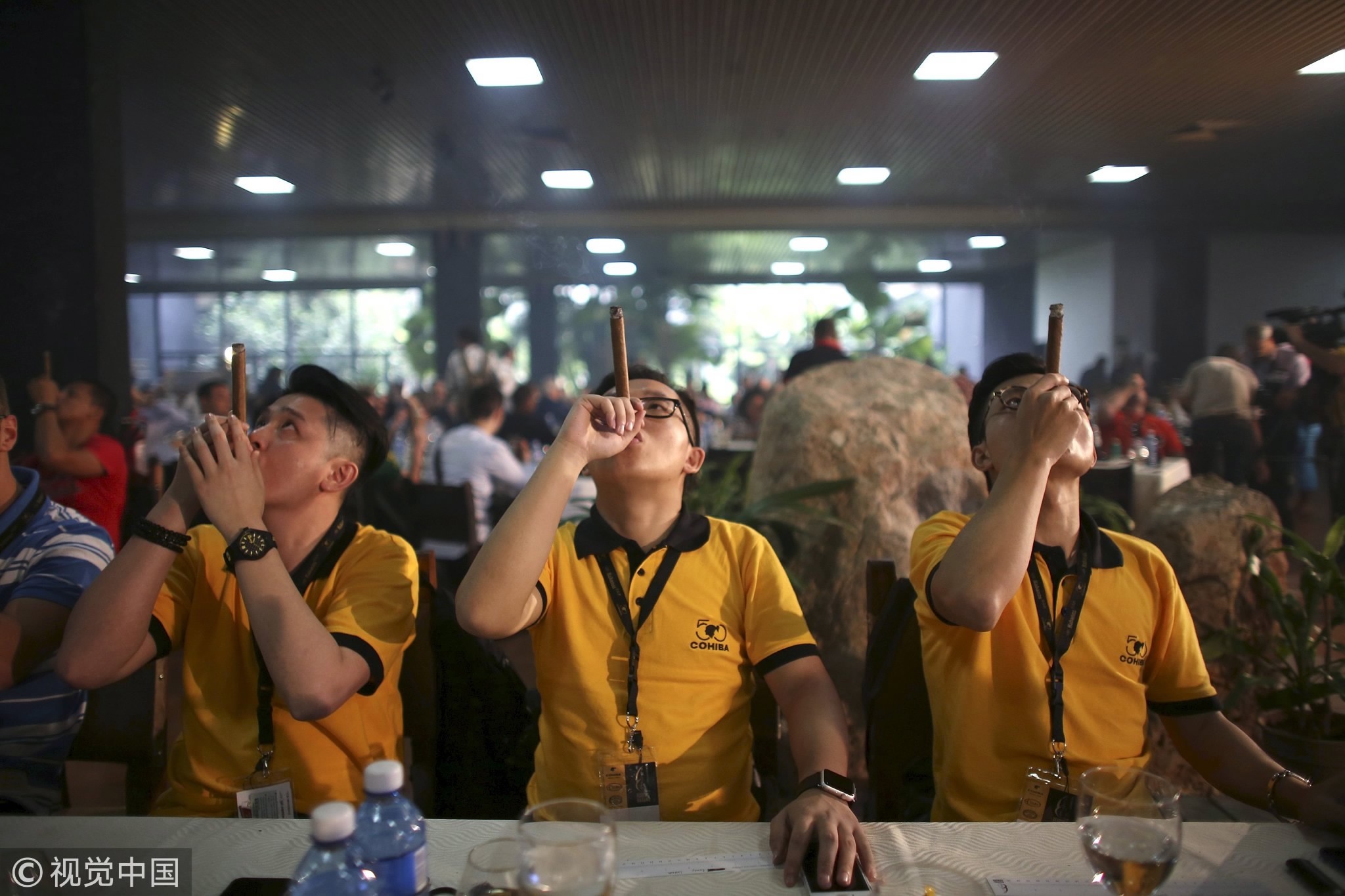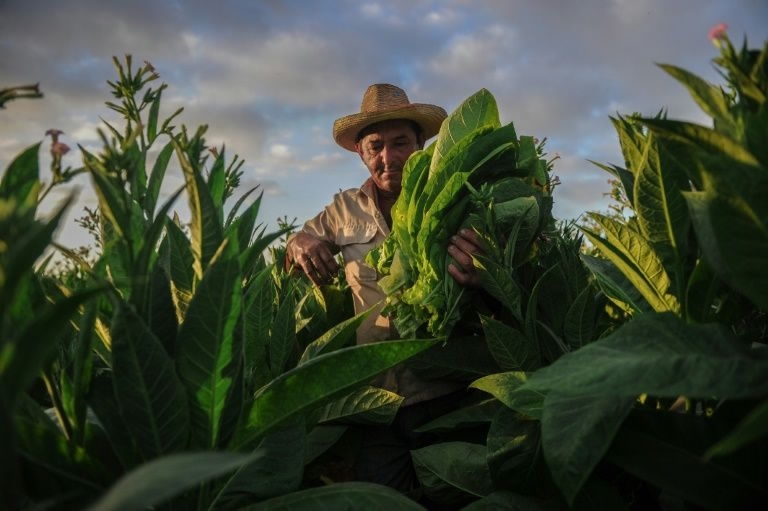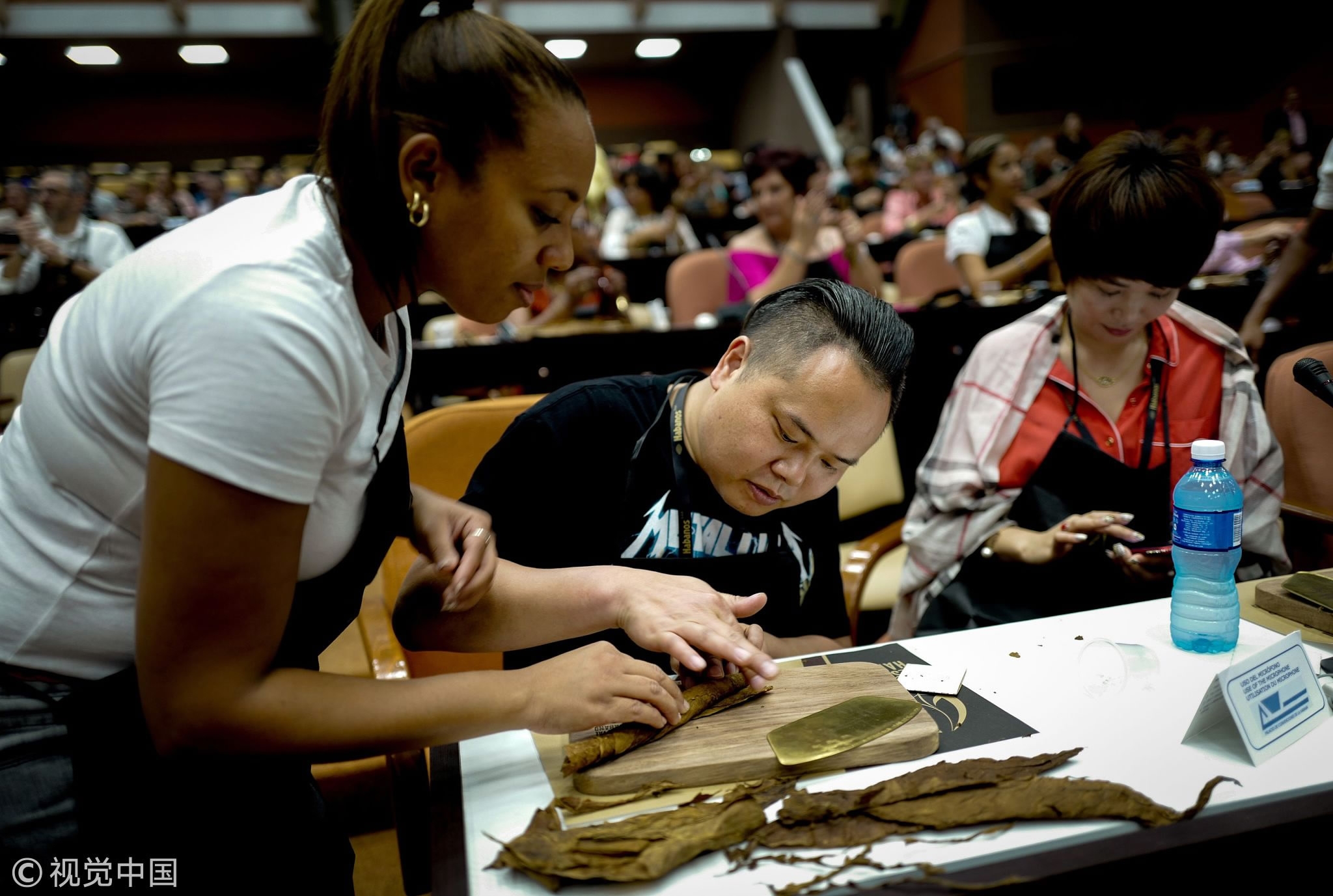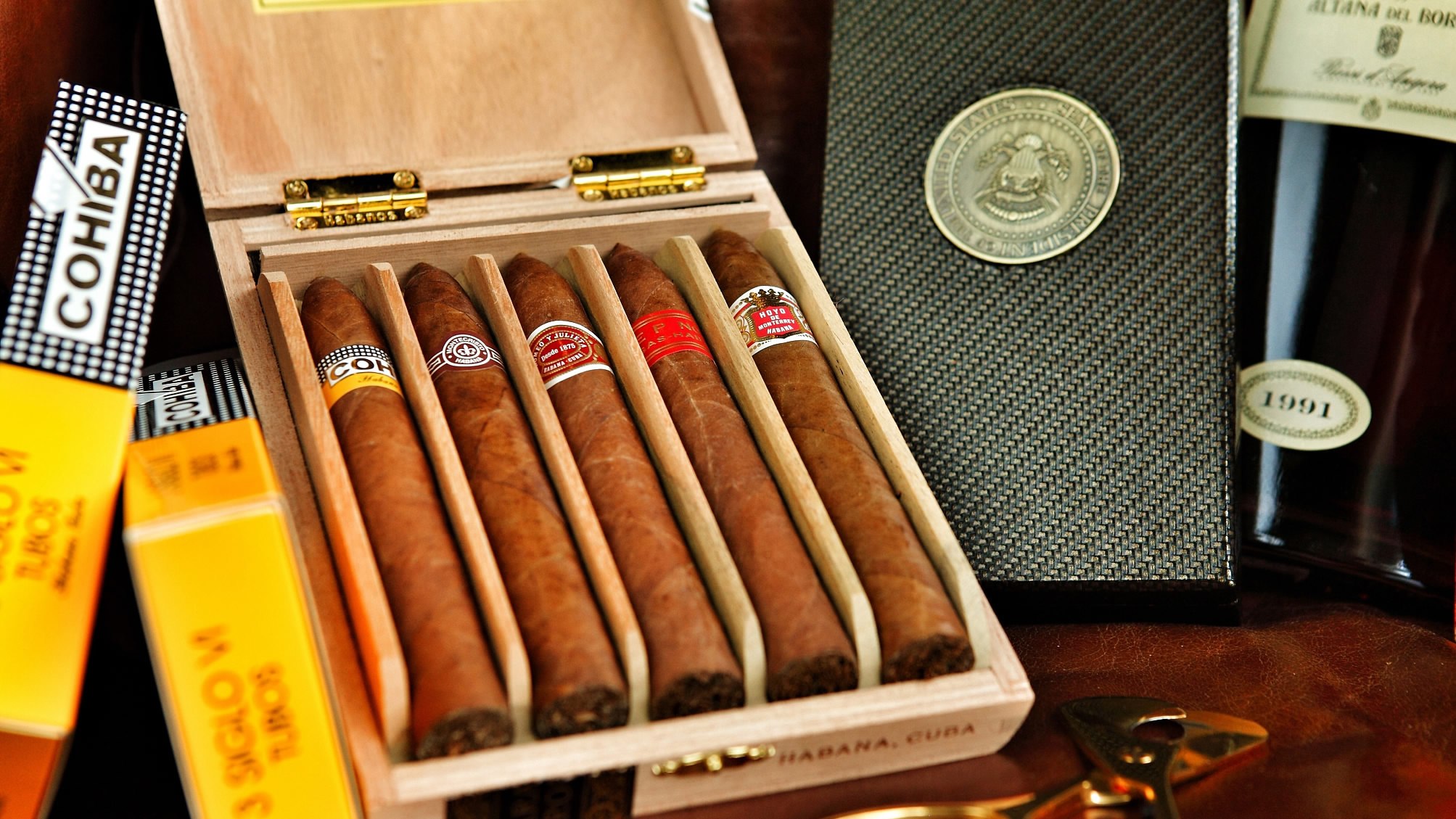When they rip the big green leaves from the tobacco plant, Cuban farmers know they're touching gold.
The island nation's legendary cigars have closed another year for the record books, in large part thanks to Chinese consumption.
China, now the world's biggest consumer of Cuban cigars behind France and Spain, is driving demand.
In 2017, a year in which the luxury market overall grew by five percent, cigar sales rose a stunning 12 percent worldwide, for a record 500 million US dollars, according to Bain & Company. Chinese sales alone went up 24 percent.

Competitors from China smoke as they compete for the longest ash during the XVIII Habanos Festival in Havana, March 3, 2016. /VCG Photo
Competitors from China smoke as they compete for the longest ash during the XVIII Habanos Festival in Havana, March 3, 2016. /VCG Photo
"China has demand that we need to fulfill, and we can count on double-digit growth for years to come," Jose Maria Lopez Inchaurbe, vice president of development of Habanos S.A., said during the opening of Cuba's annual cigar festival in Havana.
The cigars are sold in humidors that can fetch more than one million US dollars at auction.
But behind the pricy pastime is the work of the farmers who harvest the leaves at the start of each year.
"This year is not bad, but it is not the best of all years. It rained last year and now it's not raining, so the tobacco is not getting refreshed. Rain is the plant's medicine," said Lazaro Lazo, 48, who has worked the tobacco fields for two decades.
US embargo still looms large

Yosvani Herrera (36) looks on while working at the H. Upmann cigar factory during the XX Habanos Festival in Havana, Cuba, March 1, 2018. /VCG Photo
Yosvani Herrera (36) looks on while working at the H. Upmann cigar factory during the XX Habanos Festival in Havana, Cuba, March 1, 2018. /VCG Photo
“This is the best tobacco in the world, because of the soil,” said Fernando Hernandez, a 50-year-old farmer who manages the harvest in the prime growing area in and around Pinar del Rio, in western Cuba, 160 kilometers (100 miles) from the capital Havana.
"The red earth of Pinar del Rio is the best, but resources are scarce" because of the US trade embargo in place for more than a half century.
Without the embargo, "there would be more production," he told AFP.

A farmer harvests tobacco leaves on a plantation in San Juan y Martinez in the area near the Cuban city of Pinar del Rio. /AFP Photo via Yahoo
A farmer harvests tobacco leaves on a plantation in San Juan y Martinez in the area near the Cuban city of Pinar del Rio. /AFP Photo via Yahoo
Cuban cigars are exported by Habanos S.A., a 50-50 joint venture between the Cuban state and Spain's Altadis, a firm owned by Imperial Tobacco Group of Britain.
Because of the embargo Washington has applied to the communist-ruled island since 1962, the cigars cannot be exported to the lucrative US market, although Americans travelling to Cuba can bring some home.
Cubans still bristle at the fact that in 1962, then president John F. Kennedy ordered a top aide to buy him 1,000 cigars. Once the cigars were in his office, Kennedy signed the embargo into law.
For now, European countries receive 54 percent of Cuban cigar exports, followed by countries in Latin America (17 percent) and the Asia-Pacific region (15 percent).
New horizons

A Cuban instructor (L) helps participants roll cigars during a master class in the 20th edition of the Havana Cigar Festival, on February 28, 2018, at the Convention Palace in Havana. /VCG Photo
A Cuban instructor (L) helps participants roll cigars during a master class in the 20th edition of the Havana Cigar Festival, on February 28, 2018, at the Convention Palace in Havana. /VCG Photo
In order to conquer new markets, Habanos created an "academy" to teach newcomers the art of cigar smoking.
"In 2016 alone, we trained 11,000 (new) consumers in the world," said Lopez.
In the fields of Pinar del Rio, once tobacco leaves are harvested, they are taken to a rustic cabin where women string together leaves through their stems with a needle and thread and hang them to dry.
Later, the cigars are rolled.
"I am glad to be part of this business, but we do a lot and don't see much of a result," complained 51-year-old Cristina Valdes, who has spent 30 years in the tobacco fields.
The cigar business employs some 130,000 people in Cuba, an island of 11 million.
Source(s): AFP






